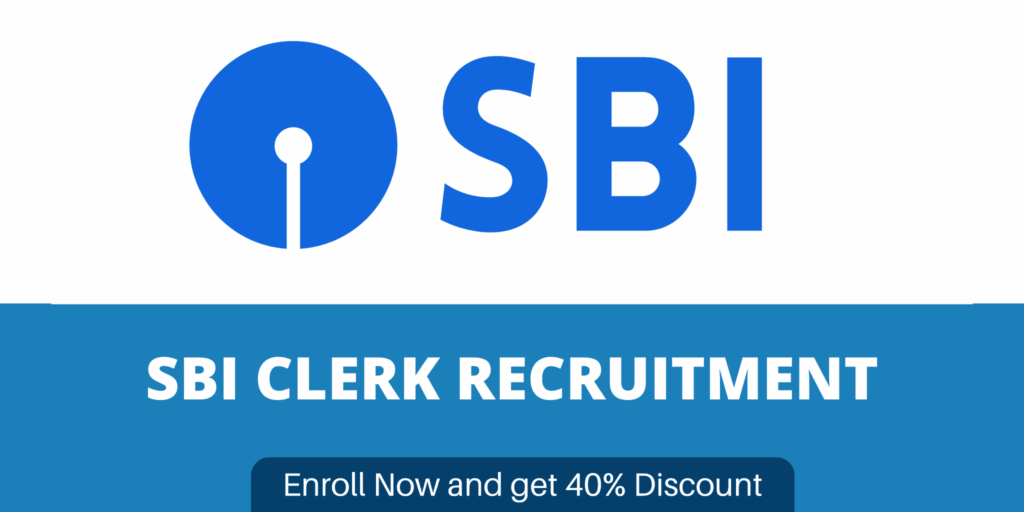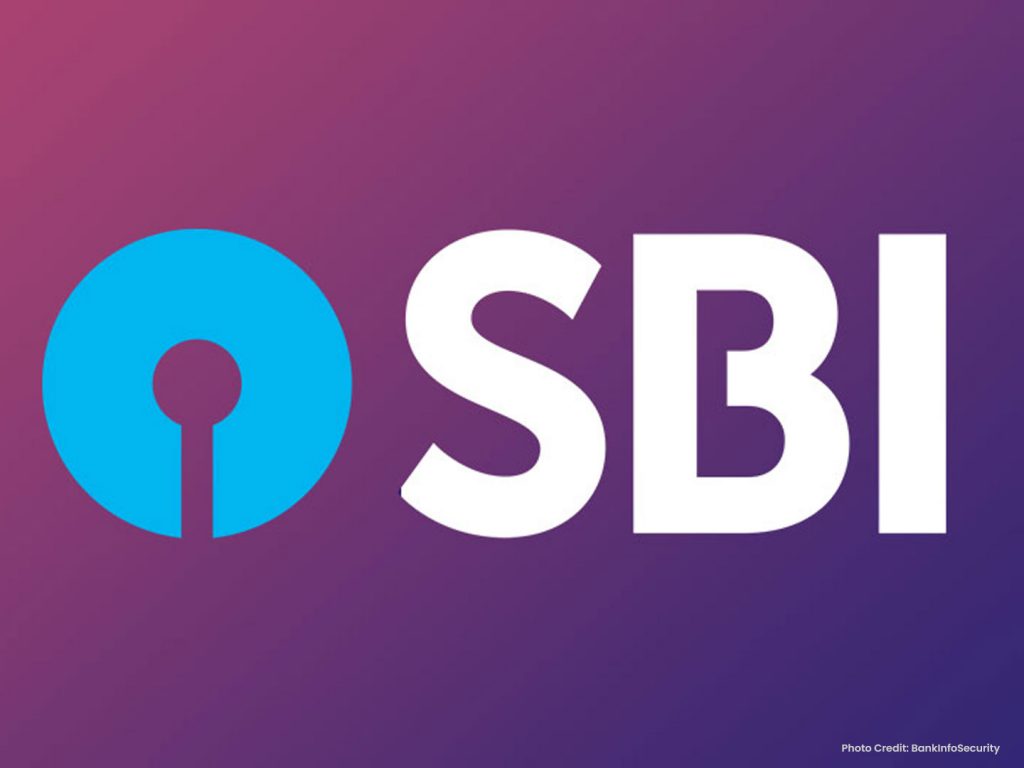Introduction:
The SBI Clerk exam is conducted by the State Bank of India to recruit candidates for the clerical cadre in its branches across India. It is a national-level competitive exam that assesses candidates’ proficiency in various subjects such as English Language, Numerical Ability, Reasoning Ability, Computer Awareness, and General Awareness. SBI Clerk recruits handle customer inquiries, perform clerical tasks, and assist in banking operations. It’s a prestigious opportunity for candidates aspiring to start a career in the banking sector.


The syllabus for the SBI Clerk (Junior Associate) exam generally covers several key areas to assess the candidates’ abilities in various subjects. Here’s a detailed breakdown of the syllabus:
- English Language:
- Reading Comprehension
- Cloze Test
- Fill in the blanks
- Error Spotting
- Sentence Correction/Improvement
- Para Jumbles
- Vocabulary (Synonyms/Antonyms, Homonyms, Word Formation, Spelling)
- Phrases and Idioms
- Numerical Ability:
- Simplification/Approximation
- Number Series
- Quadratic Equations
- Data Interpretation (Tables, Charts, Graphs)
- Arithmetic Topics (Percentage, Profit & Loss, Average, Ratio & Proportion, Time & Work, Time & Distance, Simple & Compound Interest)
- Mensuration
- Permutation, Combination & Probability
- Data Sufficiency
- Reasoning Ability:
- Syllogism
- Blood Relations
- Coding-Decoding
- Alphanumeric Series
- Puzzles (Seating Arrangement, Floor Puzzle, Tabulation)
- Direction Sense
- Inequality
- Input-Output
- Logical Reasoning
- Data Sufficiency
- Computer Awareness:
- Basic Computer Fundamentals
- Computer Software & Hardware
- Operating System Functions
- MS Office (Word, Excel, PowerPoint)
- Internet & Networking
- Keyboard Shortcuts
- Computer Abbreviations
- General Awareness:
- Current Affairs (National & International)
- Banking Awareness
- Financial Awareness
- Static GK (Country-Capital, Country-Currency, Indian Constitution, Awards & Honors, Books & Authors, Important Days, Sports)
It’s essential to note that the SBI Clerk exam pattern may vary slightly from year to year, so it’s advisable to check the official notification provided by the State Bank of India (SBI) for the most accurate and updated information regarding the syllabus and exam pattern. Additionally, practicing previous year’s question papers and mock tests can help familiarize oneself with the exam format and improve overall performance.
Here’s to more detail about it:
- Financial Awareness:
- Banking Terms
- Financial Institutions
- Monetary Policy
- Economic Concepts
- Government Schemes related to Banking
- Budget Basics and Current Union Budget
- International Organizations/Financial Institutions
- Quantitative Aptitude:
- Data Interpretation (Pie Charts, Bar Graphs, Line Graphs, Tabular Data)
- Simplification and Approximation
- Number Series
- Quadratic Equations
- Percentage
- Ratio and Proportion
- Average
- Profit and Loss
- Simple and Compound Interest
- Time, Speed and Distance
- Work and Time
- Probability
- Permutation and Combination
- Marketing Aptitude:
- Basics of Marketing
- Marketing Strategies
- Market Segmentation
- Marketing Mix
- Branding and Advertising
- Customer Relationship Management
- Sales Management
- Product Life Cycle
- Market Research and Advertising
- General Science:
- Physics
- Chemistry
- Biology
- Environmental Science
- Basic Scientific Laws and Principles
- Important Discoveries and Inventions
- Current Affairs:
- National News (Current Affairs related to Indian Economy, Indian Polity, and Governance)
- International News (Current Affairs related to treaties, agreements, diplomatic relations)
- Events of National and International Importance
- Sports News
- Awards and Honors
- Science and Technology News
It’s crucial for candidates to prepare thoroughly across all these sections to perform well in the SBI Clerk exam. Regular practice, revision, and staying updated with current affairs are key strategies for success. Additionally, candidates should also focus on time management during the exam to ensure they can attempt all the questions within the allotted time frame.
Here is more detail to it:
- Banking and Financial Awareness:
- Banking Basics and History
- Reserve Bank of India (RBI) and its Functions
- Types of Banks and their Functions
- Financial Markets and Instruments
- Banking Terms and Abbreviations
- Regulatory Bodies in the Indian Financial System
- Computer Knowledge:
- History of Computers
- Computer Fundamentals
- Input and Output Devices
- Operating Systems
- Microsoft Office (Word, Excel, PowerPoint)
- Internet and Networking
- Computer Shortcuts and Abbreviations
- Data Interpretation:
- Tables
- Pie Charts
- Bar Graphs
- Line Graphs
- Caselet Data Interpretation
- Coding and Decoding:
- Coding by Letter Shifting
- Coding and Decoding by Analogy
- Coding and Decoding in Fictitious Language
- Coding and Decoding by Letter Shifting Pattern
- Critical Reasoning:
- Strengthening and Weakening Arguments
- Assumptions and Conclusions
- Cause and Effect
- Inference and Judgment
- Analytical Reasoning:
- Statement and Assumption
- Statement and Argument
- Statement and Course of Action
- Statement and Inference
- Sentence Correction:
- Sentence Completion
- Sentence Reconstruction
- Sentence Improvement
- Sentence Rearrangement:
- Paragraph Rearrangement
- Sentence Rearrangement to Form a Logical Paragraph
- Paragraph Formation Questions:
- Introduction to Paragraph Formation
- Identifying the First and Last Sentences of Paragraphs
- Vocabulary:
- Synonyms and Antonyms
- Homophones and Homonyms
- Word Usage in Sentences
- Contextual Vocabulary
Preparing thoroughly across all these sections, practicing mock tests, solving previous years’ question papers, and staying updated with current affairs are crucial aspects of SBI Clerk exam preparation. Moreover, candidates should focus on developing strong conceptual understanding and effective time management skills to excel in the exam.
Conclusion:
The SBI Clerk exam offers a gateway to a promising career in the banking sector, providing opportunities for candidates to serve in various branches of the State Bank of India. With its comprehensive evaluation of candidates’ skills and knowledge, the exam ensures a pool of competent professionals to meet the demands of the banking industry. Successfully clearing the SBI Clerk exam opens doors to a fulfilling and rewarding journey in the dynamic world of banking, paving the way for personal and professional growth.
